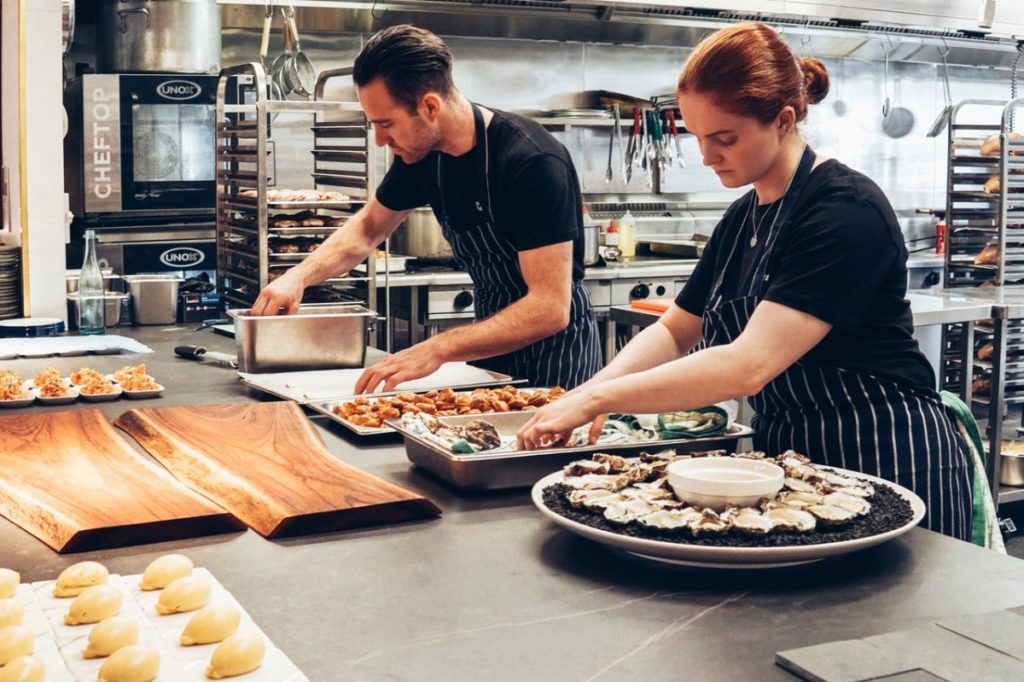Launching your own restaurant business does not just require a strong array of dishes that will keep customers coming back. It also takes an amount of meticulous preparation to come up with a solid business plan. But it doesn’t end there.
There is so much more that goes into developing a food business concept. When doing your own research and determining the feasibility of your new venture, think about the pros and cons of your decisions, such as knowing if it is smarter to start from scratch or instead take an opportunity to acquire a quick-service restaurant.
From the get-go, understand that franchise or otherwise, a restaurant requires full-time commitment before operations become steady.
What to Prepare for in Starting Your Own Restaurant
Let these five tips be your guide to knowing the kind of restaurant you want to and can start. These will also help as you put together your business plan.
1. Understand what it means to stay in a location.
Location has a significant impact on how successful your restaurant will be. This is because foot traffic and accessibility are determined by the place in which you settle. Depending on where your restaurant is located, you will have an easier or harder time marketing it to consumers.
The location you’re eyeing also helps narrow down the kind of food you will be selling and to whom you will be selling. For example, if your chosen location is near a university, your primary market will likely be students. You should also take note of other restaurants that could be selling similar products to the ones you have in mind.
2. What makes your menu stand out?
When starting out, the tendency is to want to impress the customer with a wide range of menu items. However, if your menu has too many things on it, it is not only overwhelming for customers. It also means needing a much larger inventory of ingredients prepared beforehand, which adds unnecessary stress.
Start with a core menu that simplifies the number of raw materials that you have to work with. With fewer raw materials, you also save storage space in the kitchen.
As you build your starter menu, remember that there is always time later on to add and diversify. You will get more customer feedback to help you make these decisions in the future, so don’t rush.

3. Decide on your restaurant’s identity.
You already get a basic idea of the concept you will have from the kind of dishes you’re planning to include in your menu. For instance, a restaurant whose specialty is its impressive range of hot dog sandwiches is likely to be a casual dining setup rather than a fine dining restaurant.
The customers you are hoping to cater to also inform your restaurant’s identity. Being located in an upscale area lets you go for a more formal branding. Alternatively, branding as a family restaurant also makes sense if you set up shop in a residential area.
In conceptualizing, just make sure that your food, market, and overall theme are consistent with each other to form a cohesive brand identity for your restaurant.
4. Know whom you are competing against.
Pay a visit to the restaurants near your prospective location as part of your research. Their menu and food quality are obvious things to review, but you should also notice other details, such as seating area and amenities such as TVs, playgrounds, and the like.
Think like a customer and understand what keeps customers returning to this particular establishment. Then think as a competitor and see how you can respond to these features in your own restaurant.
5. Hire workers to start.
Many businesses begin by having family and close friends shoulder the work while in the early stages. While help should always be appreciated, consider how this new dynamic could affect your personal relationships, too.
Hire extra hands who can handle kitchen and serving duties. Take recommendations from people you know to ensure the quality of the talent you are bringing into the business. When you hire new employees, train them, too, so that they will be prepared once your restaurant opens.
Weigh Your Options
Knowing what you have to do and be prepared for as you embark on this journey, weigh your options. Consider if this new investment is the best and look into other possibilities, such as franchising or changing your branding. With dedication and hard work, success is a possibility for brand-new ventures.

